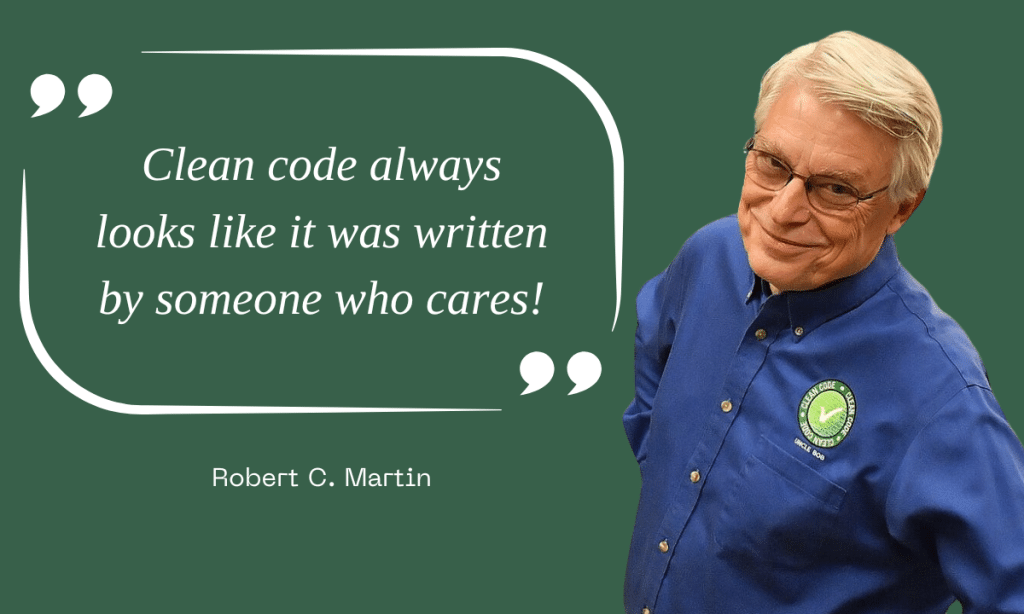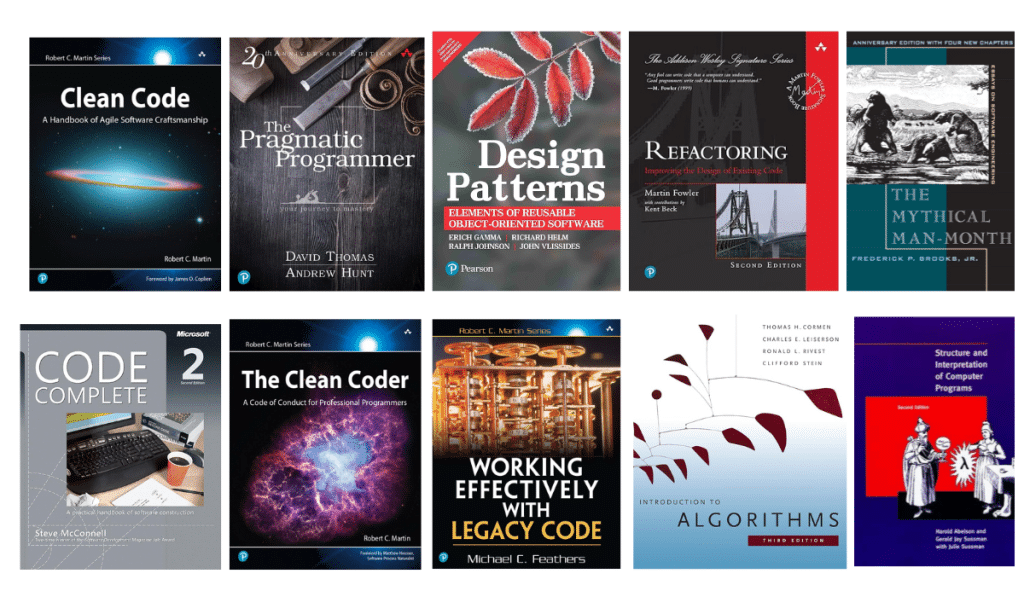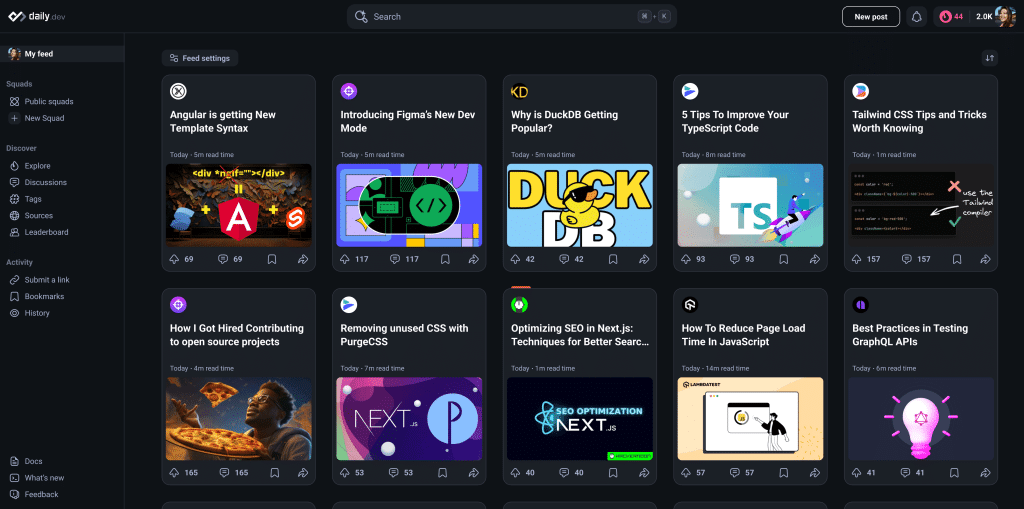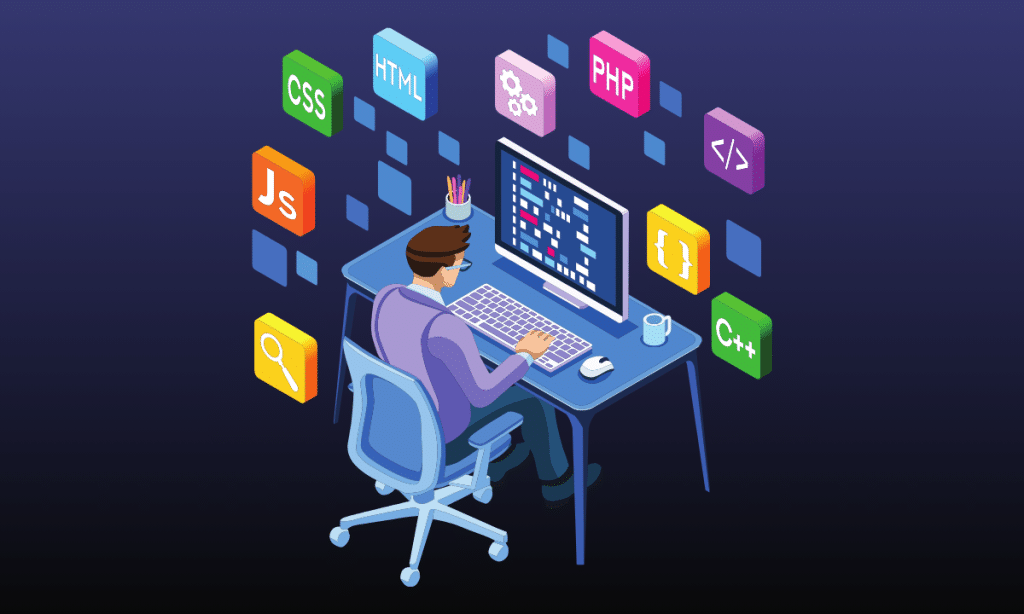Where and how developers learn in 2025?


Developers learn through various sources, from traditional books to informal online communities like subreddits. But with so much online content, how can you know what to focus on? To help you navigate this, we’ve curated a selection of evergreen books, blogs, and newsletters to help you enhance your skills and become an expert in your field.
Books as Essential Resources
Aware of the progress of technology, the expansion of AI tools, and other traps of “misinformation,” renowned experts have taken on the role of evangelists, generously sharing their knowledge with other members of the developer community.
Professional literature has become more accessible. We’ve selected ten evergreen books:
“Clean Code: A Handbook of Agile Software Craftsmanship” by Robert C. Martin
As the title says – this book prepares you to write clean, readable, and maintainable code, which is crucial for long-term success in programming and a guarantee that no machine will replace you!
“The Pragmatic Programmer: Your Journey to Mastery” by Andrew Hunt and David Thomas
This book is rich with practical programming advice, career tips, and how to improve your problem-solving skills. It’s a must-have in every programmer’s library at the beginning of their career!
“Design Patterns: Elements of Reusable Object-Oriented Software” by Erich Gamma, Richard Helm, Ralph Johnson, John Vlissides
It provides the foundation for understanding design patterns in object-oriented programming, helping developers create scalable and reusable solutions.
“Refactoring: Improving the Design of Existing Code” by Martin Fowler
It is a book that explains how to refactor code to improve its structure and design without changing its functionality, making it indispensable for maintaining and improving existing codebases.
“The Mythical Man-Month: Essays on Software Engineering” by Frederick P. Brooks
A true classic of programming literature! It explores the human side of software development, focusing on the challenges of managing software projects and teams.
“Code Complete: A Practical Handbook of Software Construction” by Steve McConnell
As the ultimate guide to software construction, this book dives deep into best practices for writing high-quality code and provides comprehensive techniques.

“The Clean Coder: A Code of Conduct for Professional Programmers” by Robert C. Martin
If you’re wondering how to become a professional programmer – a true expert in your field – this book focuses on discipline, ethics, and attitude in software development.
“Working Effectively with Legacy Code” by Michael Feathers
The development of technologies constantly requires improvements to existing code. Therefore, this book is crucial. It focuses on working with legacy code and teaches strategies for managing and improving older code while ensuring it remains functional and maintainable.
“Introduction to Algorithms” by Thomas H. Cormen, Charles E. Leiserson, Ronald L. Rivest, Clifford Stein
Known as CLRS, this book is a comprehensive guide to algorithms and data structures, indispensable for developers who want to deepen their understanding of the core principles of computer science.
“Structure and Interpretation of Computer Programs” by Harold Abelson, Gerald Jay Sussman
How can you think like a computer and use programming to solve complex problems? This approach will turn you into a human-machine. With this book, not only will you manage computers, but you’ll become one!

Blogs and Online Communities
Although books represent the best way to acquire knowledge, we cannot overlook that we live in an instant-online world, where people prefer to instantly get the information they need. They enjoy concise and summarized data, and when backed by personal experience, it creates a win-win situation!
While you probably already have accounts on many of these platforms, here’s a list of the most relevant online platforms, ranked by traffic and number of members.
Stack Overflow
Until recently the most popular platform for asking and answering technical questions, bringing together developers worldwide. This platform allows developers to ask questions, share their knowledge, and learn from other community members, making it an invaluable resource. Stack Overflow significance has been replaced by gen AI assistants for the most part, but sometimes there’s nothing like copying and pasting code form StackOverflow.!
GitHub
A community-driven platform where developers collaborate on open-source projects, share code, and contribute to various repositories. GitHub has become an indispensable place for collaborative work, innovation, and progress in software engineering.
dev.to
This community-driven platform allows developers to post articles and tutorials and discuss various programming-related topics. Dev.to is a rich source of knowledge and a space for creative idea exchange among developers.
Subreddits like r/programming and r/learnprogramming provide a platform for discussing programming challenges, sharing advice and news, and exchanging experiences among developers. These communities allow for quick connection and real-time learning.
daily.dev
A mix of Reddit-like forums, a news feed of the best engineering content, and a developer community daily.dev was founded with the idea to bring scattered online source of knowledge for engineers to one place. Don’t forget to join ShiftMag Squad there to stay up to date!

Hacker News
This social news site is dedicated to technology and entrepreneurship, offering a space for sharing articles, asking questions, and discussing the latest developments in the tech world. Hacker News gathers enthusiasts who want to stay updated with all the important industry topics.
Medium (Programming section)
Medium is a platform that offers a dedicated section for programming. Developers can find articles, tutorials, personal experiences, and advice there. It is a space for a deeper understanding of new technologies and professional skill development.
CSS-Tricks
Specializing in CSS and web design, this blog covers front-end development and design topics, offering many resources, tips, and tutorials. CSS-Tricks has become a key tool for anyone involved in web design and looking to enhance their skills.
Code Project
Code Project is a community that provides free access to articles, tutorials, and code samples covering a wide range of topics related to software development and programming. It is a true haven for developers of all levels, offering resources for all technologies and platforms.
SitePoint
SitePoint is a comprehensive online resource offering tutorials, articles, and courses on web development, design, and programming technologies. It is an extremely valuable resource for any developer who wants to expand their knowledge and improve their skills in the industry.

There are indispensable newsletters for those who don’t want to miss any important news and prefer to have the latest updates from the programming world delivered straight to their inbox.
We bring you a list of the most popular newsletters, perfect for all developers and those who want to stay up-to-date with the latest trends and knowledge in the industry.
JavaScript Weekly
JSW is a weekly roundup of news and articles about JavaScript, one of the most popular programming languages.
This newsletter offers bi-monthly web design and development updates featuring articles, resources, and tutorials.
Frontend Focus
Focused on HTML, CSS, and news related to browsers, providing essential information for frontend developers.
CSS-Tricks
It offers tips, tricks, and techniques for using CSS, making it a valuable resource for developers working with styles and layouts.
Python Weekly
Python Weekly is a newsletter that delivers news, articles, and tutorials specific to Python, one of the most widely used programming languages.
React Status
This newsletter provides updates and articles on React and related technologies, keeping developers up-to-date with the latest in the React ecosystem.

Golang Weekly
Golang Weekly brings the latest news from the Go programming language community. Go is popular among developers who focus on simplicity and performance.
Ruby Weekly
Ruby Weekly is a weekly digest of news and articles about Ruby, a dynamic, open-source programming language focused on simplicity.
It is a weekly newsletter curating the best articles about startups, technology, programming, and more for tech enthusiasts.
DevOps Weekly
This newsletter focuses on DevOps and infrastructure, offering insights into best practices, tools, and trends in modern software development.
New Ways of Learning: Gamification and AI-Powered Tools
In complement to conventional learning methods, developers today benefit from clever ways to enhance their skills. Platforms like CodinGame, Swift Playgrounds, and Codewars offer gamified learning, making problem-solving more interactive and fun.
These platforms simulate real-world scenarios, promoting critical thinking and strategy development. Moreover, AI-driven tools such as GitHub Copilot, ChatGPT, and Tabnine transform how developers write code. By providing real-time suggestions and automating repetitive tasks, these tools help developers focus on more complex challenges, streamlining the learning process and making it more efficient.



